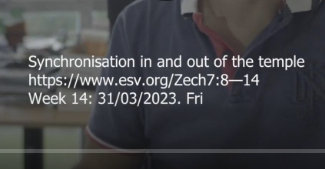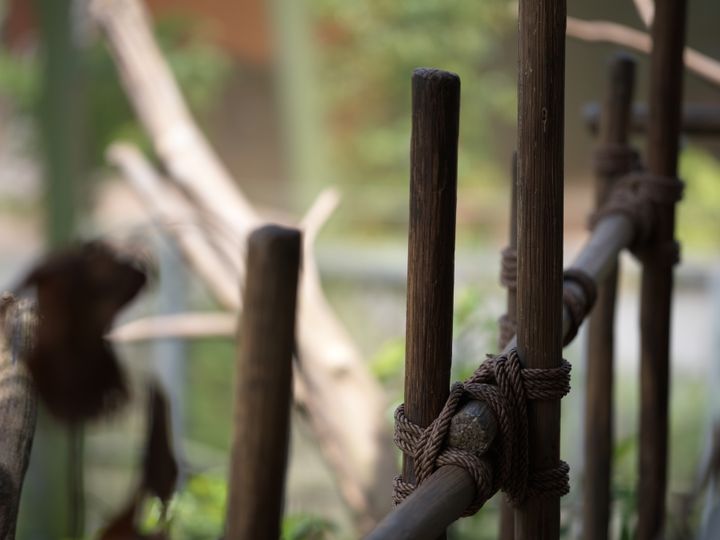Synchronisation in and out of the temple

Synchronisation in and out of the temple
https://www.esv.org/Zech7:8—14
Week 14: 31/03/2023. Fri
Very close, yet different. Religious activities, that is. How would Zechariah know that the religious activities within the temple were carried out properly? The test was whether their religious activities within the temple were synchronised with their lives outside the temple.
Zechariah 7:8–11 And the word of the LORD came to Zechariah, saying, [9] “Thus says the LORD of hosts, Render true judgments, show kindness and mercy to one another, [10] do not oppress the widow, the fatherless, the sojourner, or the poor, and let none of you devise evil against another in your heart.” [11] But they refused to pay attention and turned a stubborn shoulder and stopped their ears that they might not hear. (ESV)
Firstly, are the worship lyrics from the lips "let your glory fall" synchronised with arriving at "true judgments" in your family? Accusing others falsely, carelessly? Do we evaluate and conclude employee performance merely by who they are, how connected they are, instead of looking at agreed functions actually performed? The "former prophets" (7:7) had already warned that a society would unravel if they "refused to pay attention" (7:11) to the LORD's words.
Secondly, in every society, there would be those who are unable to resist evil effectively due to a lack of power or resources. Yet every person was made in the same "image of God" regardless of other differences. The widows of Zechariah's time lacked economic means and protection by husbands (7:10).
Our hearts go out to orphans who lacked a father to be beside them, someone who is cheering them on, someone who is pointing his hands forward to show the way when lost, someone to show them what they could not imagine possible, someone to persuade them they can when they have given up on themselves, society or life, even God.
In this synchronisation reflection, Zechariah 7 challenges us to look at our worship or other parts of religious life in the temple and compare this with our treatment of others, in particular, in our evaluations of others, and our interactions with "widows" and "the fatherless". How do these look? Beautiful?


